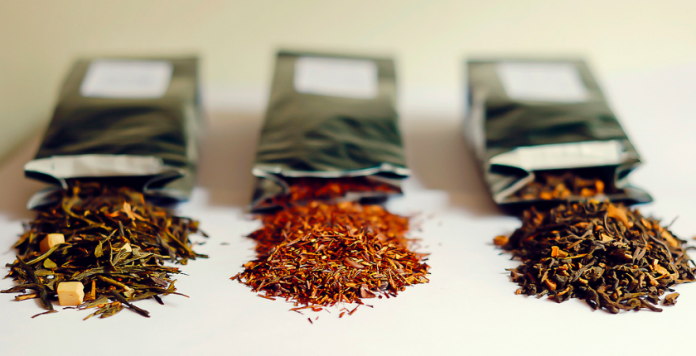
Rooibos (literally translated from Afrikaans to mean “red bush”) tea is derived from leaves that are only grown in the Cederburg, a small mountain range in South Africa’s Western Cape. While this naturally sweet herbal tea has been consumed and loved by South Africans for centuries, it has recently become popular in trendy American and European cafes.
Indigenous Khoisan people were the first to forage rooibos leaves after noting its many health and wellness benefits. Here’s why you should be following their example.
Kick the Caffeine
Rooibos is naturally caffeine-free and is often recommended as a nighttime drink for people who suffer from insomnia or are simply trying to cut down on the substance. Caffeine is considered one of the most common addictions in the world and avoiding it can reduce stress, help you sleep better and improve your cardiovascular health.
Read more about kicking the caffeine habit
Breathe Better
Many believe that rooibos is a bronchodilator, meaning it dilates bronchi and increases airflow to the lungs. Better breathing also leads to better cardiovascular health, as it can reduce blood pressure and lower your chances of getting hypertensive.
Gorgeous Glow
Your outsides will benefit from rooibos just as much as your insides. The alpha-hydroxy acid and zinc found in the tea are very good for the skin. They are known to reduce inflammation, redness, acne, and wrinkles, leaving your skin with a healthy and youthful glow.
Healthy Hair
In addition to zinc, rooibos also contains calcium, copper, and potassium. These minerals are known to promote hair growth by strengthening your tresses. In addition, the tea may help prevent hair loss by removing dead skin cells that sometimes clog hair follicles, preventing proper growth.

Tougher Teeth and Bones
The fluoride, manganese, and calcium naturally found in rooibos are known to jump-start important enzymes in your body that promote stronger teeth and bone density. In addition, these minerals can boost the repair of damaged bone tissue.
Read more about the health benefits of tea
Say Goodbye to Kidney Stones
One of the most important things that sets rooibos apart from other teas is its lack of oxalic acid. Usually, people with kidney stones are discouraged from drinking tea because oxalic acid can increase crystal formation, worsening calcium deposits within kidneys. The absence of this acid will promote healthy kidneys and help kick kidney stones to the curb.
Polyphenols, Please
In addition to the number of important minerals, it contains, Rooibos also hosts polyphenols, important organic chemicals. They act as natural antiviral, antibacterial, antioxidant and antimutagenic agents. So next time you’re sick, give your immune system a boost with a warm mug of Rooibos!
[Editor's Note: We recommend choosing a high-quality rooibos like one from our partner Bigelow Teas.]
Image by Gloria García




